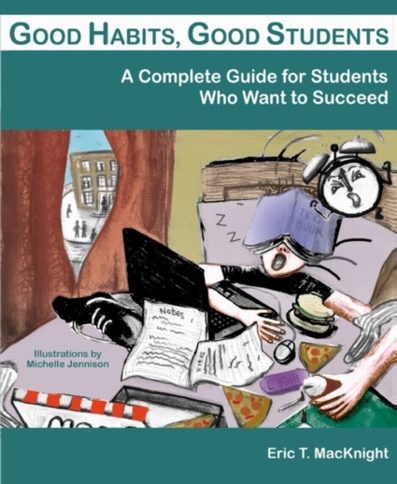Take five minutes to review every lesson you’ve had each day. Put your notes in order, jot down any questions you have about the lesson, etc. This will really pay off.
Remember that fable about the ant and the grasshopper? The ant spends the warm months collecting food for the winter and preparing his lodgings while the grasshopper eats when he’s hungry and plays the rest of the time. When winter comes the ant is warm and snug, with a good supply of food, but the grasshopper is freezing and starving.
Fables are not really about animals or insects, of course. They’re about you and me.
You probably know students—you may be one of them—who do little studying until the days just before a test. The night before the test, these students may stay up late cramming. Sometimes, they do fine. As you move up from grade to grade, however, the tests get harder, and the amount of material they cover grows. It becomes very difficult to wait until the last minute, cram, and still do well. When you reach the big examinations at the end of Grade 12, it’s impossible.
If you still have the habit of cramming for tests in Grade 12, it will be very hard to break it and replace it with better habits. The time to form good study habits is now, when tests aren’t so difficult—or so important to your future—as they will be later on.
The habit of reviewing every day for five minutes is easy to practice. Once you have established it as a routine, you’ll find that cramming for tests has become unnecessary. Here’s how you do it.
Let’s say you have four academic classes on Wednesday. On Wednesday night, you start your homework session with four five-minute review sessions. For each class, you have your textbook, your notes, and any handouts from the teacher. Using your notes, think back over that day’s lesson. What topics were covered? What were you supposed to learn? Did you understand everything? Do you have any questions about the day’s lesson? Write down any questions you have in a section of your notes, clearly labeled with the date and the topic. If any of the five minutes remains, go through your notes, handouts, or textbook and search for the answers to your questions. Any questions not cleared up during the review or the homework should be asked in class during the next lesson.
Do this for each of the classes you had that day, whether or not you have homework in those subjects. When you’ve finished, or every 20 to 30 minutes, take a five-minute break to stretch, walk around, have a snack, etc. Just be sure the break is no longer than five minutes. Then go back to work, this time doing whatever homework assignments you have.
The mini review
Here’s an even quicker way to review. Every afternoon or evening, answer three questions, in writing, about each class you had that day:
What is one thing you learned in the lesson?
What is one question you have about the lesson?
What is one thing covered in the lesson that you’d like to know more about?
If you can answer these questions, you were certainly paying attention in class and thinking about the lesson! Next day in class, ask the questions you still have about each lesson.
Daily reviews have several purposes:
They help you to store in long-term memory what you have learned in class each day. Scientists studying how the brain works have established that without regular reviews like this, whatever you have “learned” never moves from short-term memory into long-term memory, and before long it disappears! Then when test time approaches, the memory bank is empty, and you’re back to cramming. If you review regularly, you store the important ideas and information in your long-term memory, where they will remain safe and secure until you need them—on a test, for example.
They help you to identify the questions you have. Just a few minutes’ review will bring to mind questions you would otherwise forget about. Good students ask questions, and the key to getting the right answers is asking the right questions. The more you think of questions and ask them, the more you will learn.
They help prepare you to do any homework assignments that are based on that day’s lesson. Homework often aims to review and reinforce material that has been introduced in class. At other times, homework is designed to introduce a new topic. Since one lesson often leads to the next one, the best preparation for doing homework is to review what you did in class that day.
No study technique or work habit is more important to your success in school than daily review. It’s quick, it’s easy, and it makes homework and tests easier, too!

